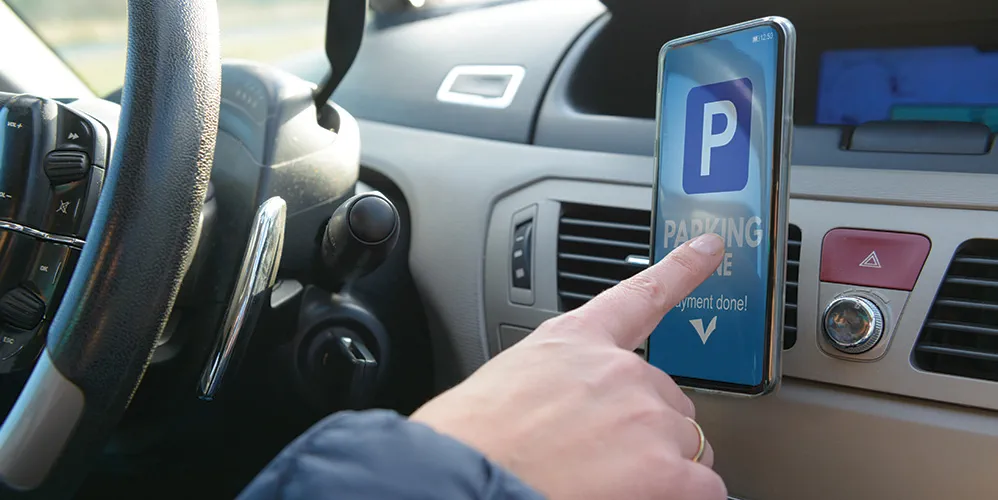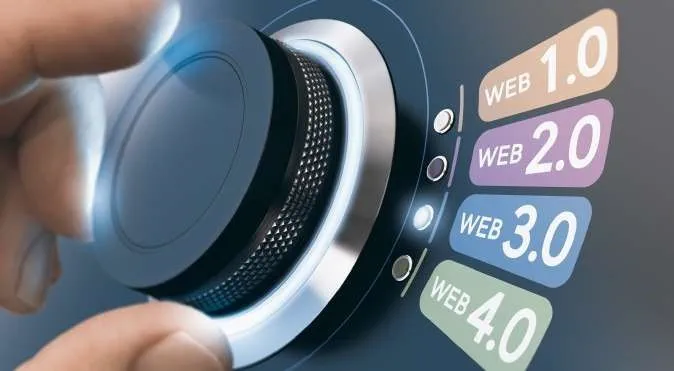
Parking Payments
18 Mar 2021

Dear Reader,
Increasing adoption of integrated automated solutions coupled with the advancements in wireless technologies are expected to drive the growth of smart parking market. Major technologies used for the deployment of efficient systems include sensing devices, machine-to-machine (M2M) communication, smart parking meters, data analytics, mobile apps for e-reservation of slots and online payments.
According to Brand Essence Research Report, Global Smart Parking Market was valued at USD 5.62 Billion in 2018 and expected to reach USD 12.83 Billion by 2025 with a CAGR of 12.5% over the forecast period.
In recent years, parking payments has drawn the attention of many FinTechs and digital payment solution providers. In India, National Payments Corporation of India (NPCI) has introduced an interoperable system so that FASTags can be used to pay parking fees at malls, airports and other private parking lots across key metros - Delhi, Mumbai, Chennai, and Bengaluru.
Such payments will be contactless, which assumes significance in the wake of Corona virus pandemic. The NETC FASTag solution will work both as post-paid and pre-paid solutions for securing parking at a parking plaza. There will be no additional cost to customers with respect to the parking fee, other than the one-time purchase cost of the tag. There will also be dedicated FASTag lanes.
In the US, Passport, a transportation software company supports the management of vehicle interactions with streets and sidewalks, through its robust digital parking payment technology. Passport supports over 1,000 clients of all sizes in North America and has processed more than $2B mobility transactions to date.
Similarly, ParkMobile is another leading provider of smart parking and mobility solutions in North America, using a contactless approach to help people easily find, reserve and pay for parking on their mobile devices.
Last month, Google announced entering into an advanced partnership with both Passport and ParkMobile. The parking payment feature can be availed in over 400 US cities, including Boston, Chicago, Houston, Los Angeles, New York and Washington DC.
Simply tap on the 'Pay for Parking' button that appears as you near your destination. Then enter your meter number, the amount of time you want to park for, and tap 'Pay'. The payment will be processed through Google Pay application.
Google Maps, along with Passport, is in the process of expanding the ability to pay for transit fares for "over 80 transit agencies" around the world, allowing the users to plan their trips, buy tickets and start riding without needing to toggle between multiple apps.
We believe that the increased interest around the parking payment technology will provide an opportunity for IoT and mobility players to up their game and significantly increase revenue generation, to get back on track in the wake of the pandemic.
Credits : Akhil Handa,Aparna Anand
Popular Articles
Guide to Getting Agriculture Loan: Application, Eligibility & Required Documents
Related Articles










-
Disclaimer
The contents of this article/infographic/picture/video are meant solely for information purposes and do not necessarily reflect the views of Bank of Baroda. The contents are generic in nature and for informational purposes only. It is not a substitute for specific advice in your own circumstances. Bank of Baroda and/ or its Affiliates and its subsidiaries make no representation as to the accuracy; completeness or reliability of any information contained herein or otherwise provided and hereby disclaim any liability with regard to the same. The information is subject to updation, completion, revision, verification and amendment and the same may change materially. The information is not intended for distribution or use by any person in any jurisdiction where such distribution or use would be contrary to law or regulation or would subject Bank of Baroda or its affiliates to any licensing or registration requirements. Bank of Baroda shall not be responsible for any direct/indirect loss or liability incurred by the reader for taking any financial decisions based on the contents and information mentioned. Please consult your financial advisor before making any financial decision.
Negotiating with AI
Negotiation is a fundamental business skill—one that is inextricably linked with human emotion and psychology as much as economic calculus. Many companies negotiate countless contracts a year, ranging from facilities rentals, technology licenses, sales, employment or strategic partnerships. One of the biggest challenges, companies face in negotiating contracts is that they span such a wide variety of topics. Even the best-trained negotiators may struggle when parsing through a contract that is outside of their purview.
Artificial intelligence (AI) is capable of performing many tasks that enhance human labour and thinking — so it only stands to reason that it can provide an advantage in the negotiation process as well. There are several levels on which this is happening.
As salespeople or customer service reps interact with customers electronically, they may be able to take advantage of real-time AI recommendations to help guide the engagement or transaction. Rather than monitor singular conversations and interject recommendations on a case-by-case basis, the AI-based negotiation system digests lots of conversational data across lots of sales reps to try to understand where there are coaching opportunities, new training opportunities, value prop improvement opportunities, and product improvement opportunities.
AI can also be applied against transaction or customer relationship management (CRM) data, to sift through responses and engagements to determine where and how companies may be missing opportunities. Also, there are chatbots that can be trained to bargain with customers.
Estonian startup Pactum, which provides an AI-based commercial negotiation tool, was engaged by Walmart to automate negotiations with part of its global supplier network. Pactum's AI-based negotiation tool starts the process by interviewing the customer, recording all the required information surrounding the negotiation, and determining the value for each possible tradeoff in the contract for the customer. Pactum's team then builds the negotiation flows.
Project Debater is the first AI system that can debate humans on complex topics. Project Debater digests massive texts, constructs a well-structured speech on a given topic, delivers it with clarity and purpose, and rebuts its opponent. It can analyze a proposition and automatically highlight the best arguments for and against it, factoring in both logical and emotional impact. Eventually IBM predicts, Project Debater will help people reason by providing compelling, evidence-based arguments and limiting the influence of emotion, bias, or ambiguity.
Perhaps one day, robot lawyers will go forth to negotiate on our behalf. But, in the meantime, A.I. can be used today to improve humans’ negotiation tactics.
Credits : Akhil Handa
Partnering with Insurtechs
Dear Reader,
Insurers across the world are adjusting to the new normal of the on-going pandemic, and as a result, there is massive acceleration in digital transformation efforts. For this purpose, Insurers and non-insurance companies alike are bringing on insurtech companies as strategic partners.
Gartner defines insurtechs as technology companies that are in their early stages of operation; that drive specific innovation across the insurance value chain by leveraging new technologies, user interfaces, business processes or business models; that leverage different forms of funding, including venture capital.
As per a CB Insights report, Funding to insurtech companies hit yearly and quarterly highs in 2020 and Q1‘21, respectively, signaling the confidence investors have in the future of the insurance tech market. In 2020, business relationships involving insurtech companies also hit a record high, coming in at over 650 partnerships for the year.
Companies such as Axa, Munich Re, and American Family are among the insurers with the most formal business relationships with insurtech companies. Recently, China-headquartered Leapstack, an AI-enabled InsurTech company specializing in healthcare, has announced a strategic plan to ink strategic partnerships with multiple Korean insurance companies as the company advances into the South Korean market.
Some Consumer-facing insurtech companies are partnering with other tech providers to improve their product offerings.For instance, auto insurtech Root provides additional benefits to policyholders via partnerships with road assistance app Agero and gas station location app GasBuddy. Home insurtech Hippo recently partnered with ADT and Handdii to improve the security and home repair services it offers policyholders. As these insurtech companies look to aggressively grow their customer bases, expect them to continue partnering with companies that offer complementary digital services.
The partnership between Galileo Platforms, a specialist blockchain technology platform for the insurance industry, and Amodo, a provider of insurance telematics technology and advisory services, including behaviour data analysis, will enable clients to benefit from their diverse experience and expertise in their respective areas of the insurance industry.
Primary core insurance software vendors like Duck Creek, Guidewire, and Unqork are also among the most active in partnering with insurtechs. These companies are incorporating complementary insurtech products to create a stickier experience for customers by tying these products to their core suites. Horizontal software providers like Microsoft and Salesforce and more mature insurtech platforms like Bold Penguin and Snapsheet have also actively formed partnerships to build out their insurance ecosystem capabilities.
We believe, as insurtech companies mature and build increasingly innovative solutions, expect to see insurers double down on successful partnerships and explore new ones.
Credits : Akhil Handa Aparna Anand

